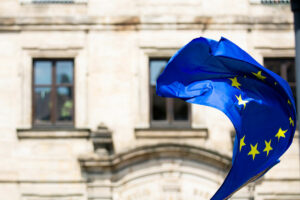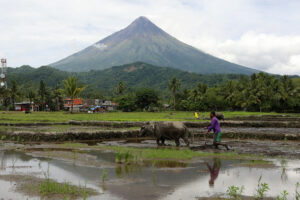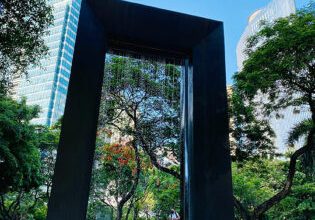The Philippines and the European Union: Embarking on the same journey

The COVID-19 pandemic dealt a blow to the Philippine economy and exposed many gaps and weaknesses in our system that had been present for some time.
Today, almost three years after the imposition of the first lockdowns, and as we try to recover from this crisis, we find that the traditional ways in which we did business and understood business growth models have changed drastically. So, if we are to recover fast and achieve sustainable development, we need to make our economy more resilient to future shocks and other uncertainties.
A big part of the effort to become resilient is to position the Philippines as a highly progressive and viable market in the international stage — and this we can do through accessibility for trade and investment, environmental sustainability, adaptive labor market, and improved quality of life.
It’s a daunting task but one that can be achieved through a multi-stakeholder, whole-of-society approach where the government partners with the private sector and civil society.
Our friends from the European Union (EU) recently gave us some encouraging words that the Philippine economy could achieve this feat — that in fact, we have made steps in the right direction, and that we only need to continue making the right policy decisions in order to accelerate what we have begun.
During the second day of the Pilipinas Conference, organized by the Stratbase ADR Institute and held on Nov. 21 and 22, members of the EU community shared their insights on how the Philippines is doing in the area of global trade and investment, specifically in efforts to open the economy and attract investments in particular sectors. The panel discussion called “Balancing Recovery with Progressive Development through Global Cooperation” occasioned a conversation on how to strengthen the partnership between the Philippines and the EU.
In his keynote speech for the session, Luc Véron, the European Union Ambassador to the Philippines, emphasized that open, rules-based trade and investment is crucial to achieving sustainable economic recovery because it generates growth and, consequently, jobs. Collaboration between and among countries is important, he said.
“Beyond legislation and beyond economic agreements, global challenges can only be addressed through international cooperation — we have to embark on the same journey. This is the only way to achieve sustainable transformation of our economies and create a better life for us and future generations,” he said.
Part of the sustainable future he envisions is tackling climate change, especially since the Philippines is one of the countries that are most vulnerable to its effects. Mr. Véron said he welcomed the revision of the Implementing Rules and Regulations of the Renewable Energy Act that now allows 100% participation of foreign investors in the sector.
Chris Humphrey, Executive Director of the EU-ASEAN Business Council, said that the Philippines has a dynamic and growing economy with a lot of positives — its people, natural resources, and geographical location. “It is unlocking the potential of all these great things that you have which could be the key to getting more trade and investments coming in.”
He spoke with candor as he said our trade and performance has been steady — “generally improving but far from spectacular. And spectacular is where you want to get to.”
He also sees the environment as key. “Unfortunately, you are a nation very prone to climate change issues. Improving life and accelerating work in these areas have the potential to attract more investments, particularly from Europe. These will create employment and conditions that allow for further investments in other sectors.”
Lars Wittig, President of the European Chamber of Commerce of the Philippines, meanwhile said that the Public Service Act is where they see the most groundbreaking reform made in several decades. “That was really a major change and also a shift in the whole approach and embracing of foreign investments and trade and local cooperation.”
Philipp Dupuis, Head of Trade and Economic Affairs of the Delegation of the European Union to the Philippines, pointed out an imbalance in the structure of Philippine exports to the EU — “Eighty-two percent of Philippine exports are electronics, in particular semiconductors, 16% in agriculture. There is little diversification,” he said.
“And even though the EU GSP+ offers tariff freedom for 66% of the tariff lines, only a few tariff lines are actually used by Philippine exporters. There is potential here. Or an opportunity.”
Mr. Dupuis also pointed out several issues that are central to achieving growth: sustainability, the environment, climate, human rights, labor rights, and good governance. European businesses are becoming increasingly interested in the Philippines, he said, and there is a lot of potential that has yet to be untapped.
For many decades, our country has nurtured a deep and lasting partnership with the EU. The insights of the members of the EU community have great strategic value, especially as we ponder the best steps we should take to achieve recovery and sustainable growth after the ravages of the pandemic. We at the Stratbase ADR Institute look forward to an even stronger collaboration with the EU in our bid to make our economy not only dynamic and robust, but resilient to external shocks, as well.
Victor Andres “Dindo” C. Manhit is the president of the Stratbase ADR Institute.




